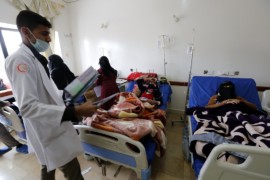Yemen is enduring an aggressive revival of cholera in a moment in which the country is devastated by a four-year civil war. According to the World Health Organization (WHO), over 1 million suspected cases of cholera have been recorded since its outbreak in 2016. Since then, Oxfam International has reported that over 3,000 people have died.
Starting from 2019, nearly 137,000 suspected cases of cholera have been detected, more than 2,000 every day, whereas over 200 deaths have been confirmed.
One third of these cases are children under the age of five years of age. Malnourished children are the most vulnerable targets. The United Nations Office for the Coordination of Humanitarian Affairs (UN OCHA) has stated that two million children require treatment for acute malnutrition. The WHO has recently posited that “the number of suspected cholera cases will continue to increase with the early arrival of the rainy season and as basic services, including lifesaving water systems and networks, have collapsed.�? Therefore, the prospect of a major cholera epidemic is not inevitable.
The spread of cholera has been brought about by the war in Yemen which has exacerbated hunger and malnutrition and halved Yemeni economy in the last four years.
The European Centre for Democracy and Human Rights (ECDHR) renews its concern over the deteriorating situation in Yemen. We call upon the international community to foster the implementation of the Stockholm Agreement, the main first step towards the achievement of a peaceful solution to the war.

